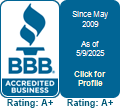Completing the search for your first home is an exhilarating experience. You’re probably juggling a dozen things or more about making the right choice. We believe that gaining insight into your future HVAC system is crucial. The property’s HVAC system represents a significant investment and source of potential long-term costs, which is why due diligence helps all first-time homebuyers.
In this guide, we’ll share seven tips for learning everything you can about a home’s heating and cooling setup. And if you want a more in-depth opinion from the experts, consider calling Select Comfort Systems. Our staff can weigh in on your options with industry insights you won’t find elsewhere.
1. Which Kind of HVAC System Does the Home Use?
Start by determining what specific HVAC system the home includes. Furnaces generally last longer compared to air conditioners, and newer types of HVAC equipment like heat pumps feature average life spans that are even longer. Knowing the make and specific model gives you a much better sense of how much routine maintenance it might need.
2. How Long Ago Was the System Installed?
Another good idea is to find out how old the HVAC system is when you’re looking at a potential new home. On average, HVAC systems last about 10-12 years. Learning its approximate installation date helps you anticipate future maintenance needs or when it might eventually stop working. Older systems may be more vulnerable to problems, so fiscal planning for a replacement unit might be needed faster than expected.
3. Is the Warranty Active?
Check if the HVAC system is still under warranty. If it is, you’ll appreciate how it can assist with maintenance costs. HVAC warranties should take care of parts and labor, but it’s important to note that details will vary. Review any terms that aren’t familiar to ensure you understand your coverage and the likelihood of out-of-pocket costs.
4. When Was the Last Time It Received Maintenance?
Next, examine the maintenance history of the HVAC system, if this kind of history is accessible. This kind of information can reveal if the repair needs are high or how often maintenance is performed. You should at least try to track down a history of key tasks like filter changes, which can indicate it received regularly scheduled tune-ups.
5. Are You Aware of the System’s Energy Efficiency Ratings?
Selecting a system with great energy efficiency isn’t just smart; it leads to lower utility bills and a smaller environmental impact. Try and find the seasonal energy efficiency ratio (SEER) ratings for air conditioning and the annual fuel utilization efficiency (AFUE) for furnaces. Higher SEER ratings mean better cooling across the entire season, while high AFUE ratings indicate that the fuel is more effectively burned for useable heat.
6. Have You Noticed Signs of Problems During Your Inspection?
Even without experience in HVAC systems, it’s still a good idea to inspect the HVAC system on your own. Watch closely for signs of problems that might have been overlooked. This includes strange noises, spots with uneven heating or cooling and attempts to cover up any visible damage.
7. Is an Experienced HVAC Technician Available to Help?
If you’re not quite sure about the overall state of the HVAC system, it’s beneficial to get a professional opinion from trained HVAC professionals. They will be much more likely to catch things you might not, including leaking coolant, damage to the wiring or flawed ductwork.
A Consultation with Select Comfort Systems Simplifies Your Home-Buying Journey
Finding your first home is meant to be a joyful event, and Select Comfort Systems will do everything possible to ensure yours is too. Get in touch with us at 801-305-4777. We can discuss how our HVAC services help make this process smoother, giving you what you need to step into your new home with confidence.

